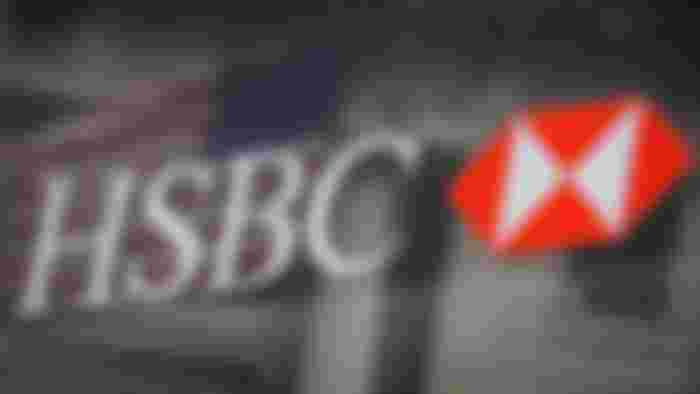
HSBC is taking heat from all sides after backing China on Hong Kong
Hong Kong (CNN Business)HSBC is learning just how tough it is to please both China and the West.
The London-based bank is facing harsh criticism from Western government officials and investors after its top executive in Asia publicly declared the firm's support for a controversial national security law that Beijing is introducing in Hong Kong.
In a blistering statement on Tuesday, US Secretary of State Mike Pompeo chastised HSBC (HBCYF) for backing the legislation, saying "corporate kowtows" would not earn the bank respect in Beijing. Critics fear the law erodes the autonomy that Hong Kong was promised when the former British colony was returned to China more than 20 years ago.
Pompeo is the latest politician to pile on HSBC after the company posted a photo on Chinese social media last week showing Asia Pacific CEO Peter Wong signing a petition supporting the law. Tom Tugendhat, chairman of the UK Parliamentary Foreign Affairs Committee, is among the British lawmakers who have questioned HSBC's decision. The bank's investors are starting to weigh in, too. David Cumming, chief investment officer for equities at Aviva Investors, which is a shareholder of HSBC, said in a statement Wednesday that "we are uneasy" at the decisions of HSBC and fellow UK-based lender Standard Chartered (SCBFF) to support the law without knowing how it will work in practice.
"If companies make political statements, they must accept the corporate responsibilities that follow," Cumming said.
Even before the photo of Wong was published, HSBC faced a difficult situation. Former Hong Kong leader Leung Chun-Ying had earlier singled out the bank for its silence on the law, demanding that HSBC express its support.
And now that the bank has taken a stance, it still doesn't appear to be winning over Beijing. China's state-run tabloid Global Times on Tuesday accused the bank of harboring "a lingering ambiguous attitude toward Hong Kong's national security law," and pointed to a longstanding accusation in China that HSBC helped the United States build a case against Huawei's chief financial officer, Meng Wanzhou.
Meng is under house arrest in Canada awaiting a decision on whether she will be extradited to the United States to face charges of bank fraud and evasion of economic sanctions against Iran. US authorities claim the Chinese tech firm misrepresented itself to HSBC as part of that scheme — an allegation Huawei denies. HSBC told Reuters last year that it gave information to authorities "pursuant to formal demand."
HSBC "may now face a worsening dilemma, where it's far from safe from reprisals," the Global Times reported, citing "some observers." Even Pompeo has noted that HSBC still faces a chilly reception in China.
"That show of fealty seems to have earned HSBC little respect in Beijing, which continues to use the bank's business in China as political leverage," he said in his statement, calling the Chinese Communist Party's "browbeating" of HSBC a "cautionary tale." A spokesperson for China's Foreign Ministry on Wednesday said that everyone has "the right to make independent decisions based on merit." "For some in the US, perhaps the world only lies in two categories — either they are with the US and should attack China, or they have been coerced by China," said Hua Chunying in response to a question about the Pompeo statement. "These views are narrow-minded and ridiculous."
The attacks are a major headache for HSBC, which began life more than 150 years ago as the Hongkong and Shanghai Banking Corporation with the aim of financing trade between Asia and Europe. The bank still has a major business presence in the region: Last year, its Hong Kong and China divisions pulled in enough money to wipe out losses in the United Kingdom and keep the company profitable.
HSBC declined to comment. The bank's Hong Kong-listed stock closed down 1.5% Wednesday. A pedestrian walking past HSBC in Hong Kong in 2017.As a British business, the bank faces the risk of becoming collateral damage between the United Kingdom and China, said Willy Lam, an adjunct professor for the Center of China Studies at the Chinese University of Hong Kong.
He noted that Huawei, for example, is trying to persuade the UK government that it can be trusted to help build the country's 5G network. If Huawei's advances are rejected by British regulators, China could retaliate by punishing HSBC, Lam said. The bank has also long been rumored to be on a list of unreliable" foreign companies that China could blacklist. "It's not surprising that the Chinese should have settled on HSBC as ... a target," Lam said.
Washington, meanwhile, "is trying to build a coalition" of allies against Beijing, according to Lam. He said that Pompeo's decision to call out HSBC specifically reflects "exacerbated" tensions between the United States and China. In some ways, Lam said, HSBC's predicament now resembles the political firestorm that engulfed Hong Kong flagship airline Cathay Pacific (CPCAY). Some of its staff members participated in widespread anti-government protests in the city last year, angering Beijing. And while the airline took steps to capitulate two of its top executives eventually resigned.
My sincere appreciation to @Read.Cash for the opportunity given, and shout-out to @cybernetus , @phavvy, @Zizi , @ChucksD, @Phronesis

Whoa! Your writing is so informative. Keep up the good work and write more. I have learned a few things today. I don't really want to side anyone, I just hope they find peace.